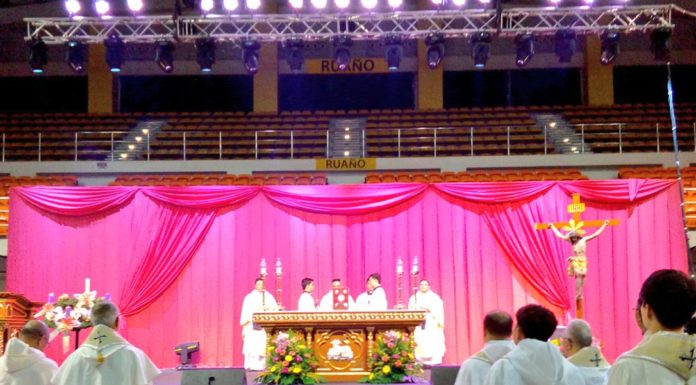“And I will take away mine hand, and thou shalt see my back parts; but my face shall not be seen.” (Exodus 33:23)
“For beauty is nothing/ but the beginning of terror, which we are still just able to endure,/ and we are so awed because it serenely disdains/ to annihilate us. Every angel is terrifying.” (Rainer Maria Rilke, Duino Elegies: The First Elegy)
“When all the masks have been removed, it is really an inquiry into our own duty, our fate. Which is not to penetrate Asia in hopes of profit. Which is not to perish in the deserts of the world without reaching our objective. Which is not rise in the hierarchies of power. Not to discover fragments of any True Cross however imagined. As the Franciscans developed the Stations of the Cross to allow any parishioner to journey to Jerusalem without leaving his church-grounds, so have we been brought up and down the paths and aisles of what we take to be the all-but-boundless world, but which in reality are only a circuit of humble images reflecting a glory greater than we can imagine—to save us from the blinding terror of having to make the real journey, from one episode to the next of the last day of Christ on Earth, and at last to the real, unbearable Jerusalem.” (Thomas Pynchon, Against the Day)
IT IS at the shores of ineluctable tedium that being’s teleological truth is most clearly revealed, and this hopefully gives some justification for the pedantic exactitude with which that truth is pursued. And yet no task is more painful, or rewarding, than having to live according to that calling.
At the wind battered bastions of Duino Castle, “Who, if I cried out, would hear me among the angels’ hierarchies?” was poet Rainer Maria Rilke’s initiation to the answer. In the Duino Elegies, the answer to human despair over existence does not really emerge from experience upsetting and spectacular, but is more evident in our daily reality. For Rilke, it was when he took a break from trying to answer a business letter that his magnum opus came to him. With that first insight contained in the opening of the First Elegy, he was provided with a scalpel as it were with which to make the revelatory incisions into a mystery we are all concerned about. Of course the succeeding Elegies speak of the “soundless doom” to which we are all committed, and the human purpose from the time of birth to life’s ending, but more significant is what is shown to exist in the habitual and oft neglected “confident daily task.”
Even from a technical analysis of existence, Martin Heidegger, in Being and Time, also sensed something special about the mundane: “We must rather choose a way of access and such a kind of interpretation that this entity can show itself and from itself. And this means that it is to be shown as it is proximally and for the most part—in its average everydayness.” Whether he is concerned with the human being as normally understood, or some other abstraction, need not be the concern here. The crux of the matter is that there is something undeniably significant in the normally normal.
And even more revolutionary on many occasions to the mind is that not only negatively perceived phenomena, but also blissful experiences, do not seem to be at par with the radiant authenticity of the ordinary in terms of lasting profundity. Miracles and tragedies are as irreconcilable poles that linger in embrace at the heart of everydayness. Zen Buddhism appropriately instructs in saying that the dualities we perceive are in reality just our conditioned minds imposing its labels on the world. However, it is important to note that true insight cannot possibly mean relinquishing Good as understood, for example, in the Christian paradigm. In fact, right actions are more emphasized by living within an understanding unfettered by binary judgments. The daily miracle is before us; the tragedy is in not seeing that.
But what could possibly be required of a scatterbrained creature so fragile and so easily confused? The Ninth Elegy of Rilke’s Elegies asserts that neither for “happiness” nor “out of curiosity,” nor “as practice for the heart,” does man persist in favor of living: “But because truly being here is so much; because everything here/ apparently needs us, this fleeting world, which in some strange way/ keeps calling to us. Us, the most fleeting of all.” The task of life for Rilke involved realizing a point of unity between our own individual existences and the whole environment which seems to stand against us. “Everywhere transience is plunging into the depths of Being…. It is our task to imprint this temporary, perishable earth into ourselves so deeply, so painfully and passionately, that its essence can rise again, ‘invisibly,’ inside us. We are the bees of the invisible. We wildly collect the honey of the visible, to store it in the great golden hive of the invisible. (Rainer Maria Rilke to Witold Hulewicz, November 13, 1925)”
To hold everything encountered in all simplicity closer than the mind’s most probing conjectures can ever attain to. That appears to be the opportunity given here in all plainness. Rilke holds that in “Things” remade within into the “invisible” is something that heaven’s elect beings might envy.
Having a paradoxical mode of existence such as man has, and being able to take faith in the beauty and depth of that conundrum, appears not just as some narcissistic exercise, but holds the very seed of the spiritual in it. What this whole discovery implies of course is that every millisecond counts—everything beckons to our human understanding of things. The task is not so much as to impose our concepts of order in the world, as it is a vocation of opening up ourselves to mere “Things,” and then granting them our own “inner space.”
Still, in the end, all these scribbles mean nothing for as Søren Kierkegaard put it: “From the Christian viewpoint, every poet-existence (all aesthetics notwithstanding) is sin, the sin of writing instead of being, the sin of relating oneself in imagination to the good and true instead of being it, or rather, of striving existentially to be it. (The Sickness unto Death)”
Dust helixes dance on the sunlit page as the eyes let go of the final words. But Thomas Pynchon ends it better in his novel Gravity’s Rainbow:
“Now everybody—”
***
To the people whose smiles keep postponing the world’s ending: Agnes, what thing holds beauty if not for your love of it? Edilyn, where is the sting of pain when you are there to laugh in its face? And for Quinia who keeps Creation’s resting dawn: pray that the awakening be worth the wait.














